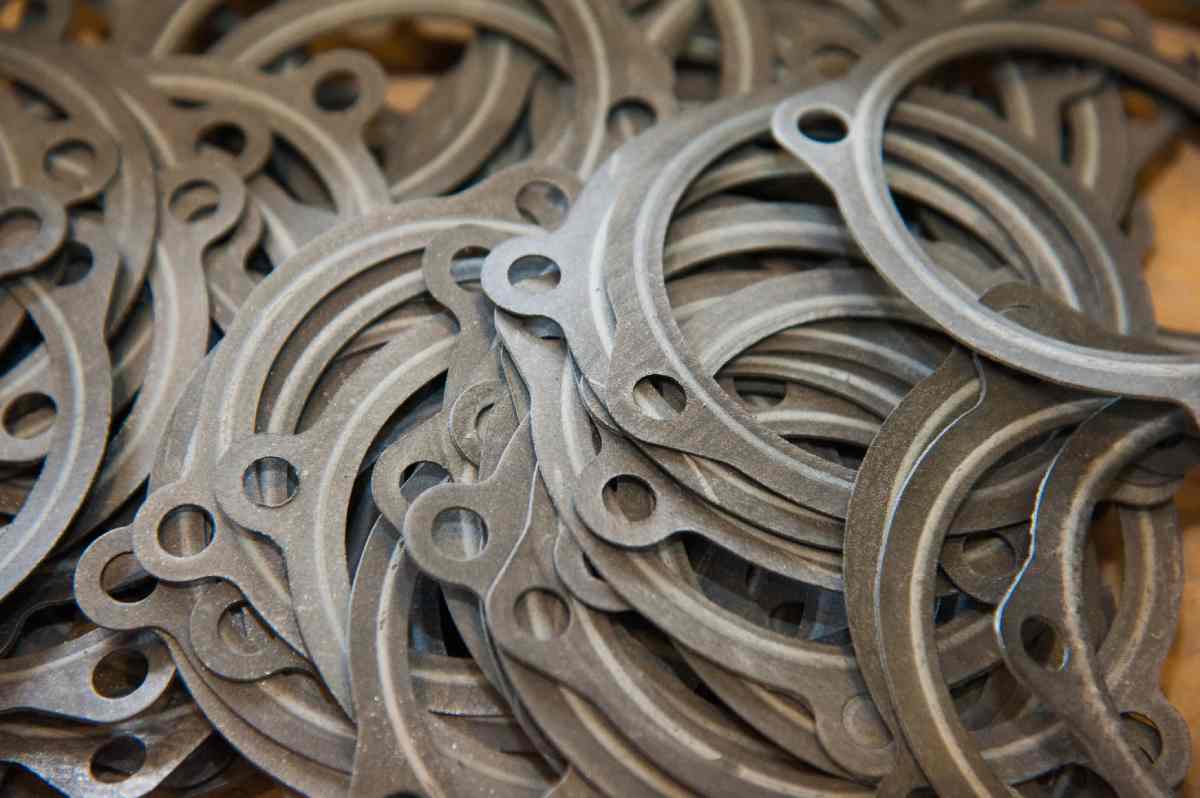
06 May Gaskets vs. O-Rings: What’s The Difference?
Gaskets and O-rings are similar in several ways. Both prevent leaks by sealing spaces between parts that fit or move together. They also manage pressure and keep fluids and gases contained within machinery or systems. That’s why so many I.B. Moore Manufacturing clients think they need one instead of the other for an application. As a gasket and O-ring supplier, we guide clients to the best product selections.
Though these parts serve related purposes, their designs, applications, and production methods differ significantly. To clarify their dissimilarities, we’ll focus on functionality and design points.
Gasket and O-ring Function and Design Differences
The most apparent difference between gaskets and O-rings is their shape.
- Gaskets are typically flatter, made from sheet material, and cut into profiles that fit between two flat surfaces. They’re barriers that fill spaces between mating surfaces, preventing leaks and maintaining pressure.
- O-rings are round, doughnut-shaped seals that fit into grooves and create tight seals when compressed. Their circular profile is ideal for applications that require pressure resistance in radial or axial directions, and we recommend them for static or dynamic systems where movement is expected, like hydraulic cylinders or rotating shafts.
Common Materials Used in Gaskets and O-rings
Environmental conditions like temperature, pressure, chemical exposure, and movement drive the choice of gasket and O-ring materials. We cut gaskets from industrial sheet rubber made from materials like neoprene, nitrile, EPDM, or silicone. Each rubber type has specific advantages, like heat or oil resistance. A gasket supplier may also offer laminated, fiber-reinforced, or cork composites for unique sealing situations.
O-rings get molded from elastomers like Buna-N (nitrile), Viton®, EPDM, or silicone. Those offer the elasticity and durability needed for dynamic sealing. An O-ring supplier focuses more on precision-molded elastomers that resist repetitive motion and high-pressure environments.
Gasket and O-ring Manufacturing Methods
Gaskets are usually die-cut or waterjet-cut from industrial sheet rubber. That allows custom sizes and shapes to match flange configurations or surface dimensions. A gasket supplier should produce standard and custom gaskets with high accuracy, especially for HVAC, plumbing, or chemical processing applications.
We manufacture O-rings through compression, transfer, or injection molding for consistent cross-sectional geometry and size control. Since they must retain a uniform profile for proper sealing, O-rings require precise tooling and curing.
I.B. Moore Manufacturing produces gaskets and O-rings in-house, supporting clients that rely on multiple sealing solutions across various components.
Where Are Gaskets and O-rings Used?
Gaskets work best in static (non-moving) applications like pipe joints, heat exchangers, and engine housings. We select them based on surface finish, pressure load, and temperature exposure. A good fit between the gasket and mating surfaces is critical.
O-rings are more common in dynamic (moving) systems, like hydraulic pumps, pneumatic cylinders, and automotive fuel injectors. They keep a tight seal during movement, so we recommend them for parts that slide, rotate, or oscillate.
Here’s an example: If two surfaces are bolted together and don’t move, a gasket cut from industrial sheet rubber may be the best solution. We’d likely go with an O-ring if a shaft moves within a housing and needs a flexible seal.
Maintenance and Replacement Considerations
Like other machine parts, gaskets and O-rings require inspections and periodic replacements to maintain system integrity. Over time, exposure to heat, pressure, and chemicals can degrade materials and compromise sealing. Signs that these parts need maintenance or replacement include cracking, hardening, flattening, or leaks.
One advantage of working with a gasket or O-ring supplier that manufactures its own products is the ability to match replacement parts precisely to original specifications. That minimizes downtime and lowers the risk of future leaks.
Companies require custom sealing solutions for equipment that operates under non-standard pressures or temperatures. The I.B. Moore Manufacturing team is proud of our ability to match materials, design custom solutions, and support clients in a wide range of industries.
I.B. Moore Manufacturing: Your Nationwide O-ring and Gasket Supplier
For over 50 years, I.B. Moore Manufacturing has produced gaskets and O-rings in-house, with reliable options for static and dynamic sealing challenges. Our clients count on us for precision, dependability, integrity, and responsiveness. Let us help you keep your equipment sealed and running. Contact us in Lexington, KY, for nationwide service.
